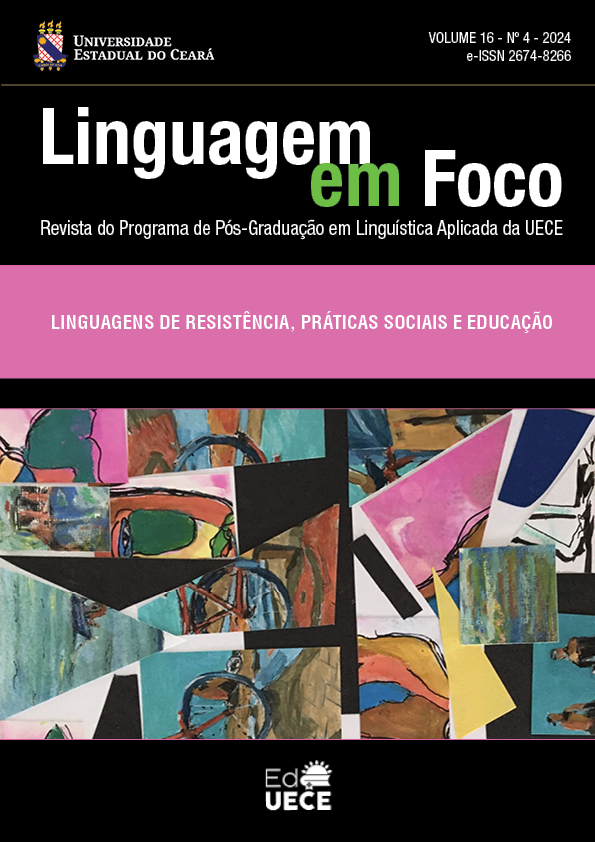Teacher Education in Ghana
the past, present and the future
DOI:
https://doi.org/10.46230/lef.v16i4.15209Keywords:
teacher education, trajectory, ghanaAbstract
Teacher education is recognized as a vital component for the socio economic development of every country. This is because the academic and professional standards of teachers constitute a critical component of the essential learning conditions for achieving the educational goals of a nation. Being aware of these, Ghana embraced teacher education and the sector has since evolved. However, the development in Ghana’s teacher education sector has not been mapped, analysed, synthesised and shared with the scholarly community in a single paper. This paper critically reviews literature (reports, policy texts, working papers, government documents and statistical data from government agencies) on the most significant developments in Ghana’s teacher education from past to the present and prescribe the desired teacher education for the future.
Downloads
References
Abduljabbar, O.A. & Dauda, S. (2022). Teacher Education and National Development:The Nigerian and Zambian Experience. Zamfara Journal of Politics and Development, 3(3), 1-12.
Abukari, A. (2007). Financing basic teacher education in Ghana: looking beyond traditional funding sources. Middlesex University Occasional papers in Education and Lifelong Learning, 1 (1). pp. 27-43
Acheampong, K. & Furlong, D. (2000). Discussion Paper 7. Ghana: a Baseline Study of the Teacher Education System. Available on https://www.semanticscholar.org/paper/Discussion-Paper-7.-Ghana%3A-a-Baseline-Study-of-the-Akyeampong-Furlong/86509bb23d359014ced661ff29093ff2b3fb7cbf
Adegoke, K. A. (2003). Capacity Building of Lead Teacher Training Institutions in Sub-Saharan Africa: Ghana, UNESCO sponsored project-4500007474.
African Union (2019). African Teacher Qualification Framework: For Teacher Quality, Comparability and International Mobility. Addis Ababa: African Union.
African Union (2015). Continental Education Strategy for Africa (16-25). Addis Ababa: African Union.
Amofah, J. (2022). Challenges of 2022 Postings of Newly Trained Teachers and the Way Forward. Available on https://www.modernghana.com/news/1140712/challenges-of-2022-postings-of-newly-trained-teach.html
Ansah, F., & Swanzy, P. (2019). Affiliation policy rhetoric and reality in the Ghanaian higher education context. Journal of Higher Education Policy and Management, 41(2), 204-218. https://doi.org/10.1080/1360080X.2019.1575176 DOI: https://doi.org/10.1080/1360080X.2019.1575176
Ansah, F., Swanzy, P., & Obeng, R. A. (2019). No PhD, no tenure policy – Is it the best way forward? University World News.
https://www.universityworldnews.com/post.php?story=20190103090808316
Bernasconi, A.S. (2006). Does the affiliation of universities to external organizations foster diversity in private higher education? Chile in comparative perspective. Higher Education, 52, 303–342. doi:10.1007/s10734-004-5326-8 DOI: https://doi.org/10.1007/s10734-004-5326-8
GhanaDistricts. (2024). GhanaDistricts: A resource base for all local assemblies in Ghana. Available on https://www.ghanadistricts.com/
Ghana National Service Scheme (2024). About us. Available on https://www.nss.gov.gh/
Ghana Tertiary Education Commission. (2019). Roadmaps to Accreditation: Revised. Accra: Ghana Tertiary Education Commission
Jamal, N. (2022). Meaning, Nature and Scope of Teacher Education. Patna: Maulana Mazharul Haque Arabic and Persian University.
Kanayo V.A (2012). Preparing teachers for a changing world. Unpublished seminar paper Imo state university Owerri.
Kuhlee, D. (2017). The Impact of the Bologna Reform on Teacher Education in Germany: An Empirical Case Study on Policy Borrowing in Education. Research in Comparative & International Education, 12(3), 299–317. DOI: https://doi.org/10.1177/1745499917730733
Lavonen, J. (2020). Curriculum and Teacher Education Reforms in Finland That Support the Development of Competences for the Twenty-First Century. In F. M. Reimers (Ed.), Audacious Education Purposes: How Governments Transform the Goals of Education Systems (pp. 65-80). Cham, Switzerland: Springer Nature. DOI: https://doi.org/10.1007/978-3-030-41882-3_3
McWilliams, H.O.A. & Kwamena-Poh, M.A. (1975). The Development of Education in Ghana. London: Longman Group.
Rieckmann, M. (2019). Education for Sustainable Development in Teacher Education. An International Perspective. In S. Lahiri, (ed.), Environmental Education (pp. 33–48). Delhi: Studera Press.
Republic of Ghana. (2022). Education Budget Brief 2023. Accra: GOG
Sanyal, B.C. (2013). Quality assurance of teacher education in Africa. Addis Ababa: UNESCO- IICBA.
Swanzy, P. (2016). Quality assurance in ghanaian polytehnics: Perspectives and strategies of rectors, vice rectors and quality assurance officers. (Doctor of Philosophy Dissertation), University of Adelaide, Adelaide.
Swanzy, P. & Kwasi-Agyeman, F. (2023). Mapping Key Facts of Ghana’s Higher Education System. In B. Daniel & R. Bisaso (Eds), Higher Education in SubSaharan Africa in the 21st Century – Pedagogy, Research and Community-Engagement (pp. 183-204). Singapore: Springer DOI: https://doi.org/10.1007/978-981-99-3212-2_11
Transforming Teaching Education and Learning. (2024). Knowledge Hub: B.Ed. Resources. Accra: T-TEL.
United Nations Development Programme. (2012). 2010 Ghana Millennium Development Goals Report. Accra: UNDP/NDPC/GOG.
UNESCO. (2024). Education for Sustainable Development. Available on https://www.unesco.org/en/sustainable-development/education
World Bank. (2015). Countries and Economies. Retrieved on 2nd Jan, 2024 at http://data.worldbank.org/country.
Downloads
Published
How to Cite
Issue
Section
License
Copyright (c) 2025 Patrick Swanzy , Sandra Maria Gadelha de Carvalho, José Ernandi Mendes Mendes

This work is licensed under a Creative Commons Attribution 4.0 International License.
Authors who publish in Linguagem em Foco Scientific Journal agree to the following terms:
- Authors retain the copyright and grant the journal the right of first publication. The articles are simultaneously licensed under the Creative Commons Attribution License which allows sharing the work with an acknowledgement of its authorship and initial publication in this journal.
- The concepts issued in signed articles are the absolute and exclusive responsibility of their authors. Therefore, we request a Statement of Copyright, which must be submitted with the manuscript as a Supplementary Document.
- Authors are authorized to make the version of the text published in Linguagem em Foco Scientific Journal available in institutional repositories or other academic work distribution platforms (ex. ResearchGate, Academia.edu).





























